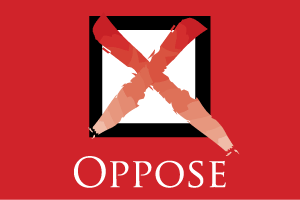 The California Chamber of Commerce is opposing a bill that will increase taxes and disrupt the health care upon which millions of Californians rely at the worst possible time.
The California Chamber of Commerce is opposing a bill that will increase taxes and disrupt the health care upon which millions of Californians rely at the worst possible time.
AB 1400 (Kalra; D-San Jose) Penalizes responsible employers and individuals and results in hundreds of billions of dollars in new taxes on all Californians and California businesses by creating a new single-payer government-run, multibillion-dollar health care system.
CalChamber President and CEO Jennifer Barrera in a statement yesterday pointed out that AB 1400 and its companion bill ACA 11 will subject taxpayers to billions of dollars a year in higher taxes on jobs, income, services and more.
“We ask that policymakers focus on ways to achieve affordable health care without upending a proven system that currently covers 94% of Californians,” she said. “Californians need and deserve a stable health care system they can rely on at all times, especially now.”
Added Tax Burden Is Unsustainable
There is nothing free about single-payer health care. AB 1400 and ACA 11 propose increasing Californians’ taxes hundreds of billions of dollars per year to fund a government-run health care system, CalCare. This proposal would be the biggest tax increase in state history and punish Californians by increasing personal income taxes, payroll taxes, and gross receipts taxes. This enormous tax increase would occur at a time when California is experiencing a $31 billion surplus—a surplus that pales in comparison to the annual expenditures a government-run health system would demand.
In 2008, the California Legislative Analyst’s Office (LAO) analyzed the cost of a single-payer system in California and concluded that more than $210 billion would be needed in the first year to sustain such a system, with the cost increasing up to $250 billion in subsequent years. Even with a 12% payroll tax paid both by employers and employees, the report predicted a net shortfall of $42 billion in its first full year of implementation and even higher thereafter. Just to cover the shortfall, a 16% tax on employers and employees was estimated by the LAO, resulting in a multibillion-dollar tax increase on Californians. No doubt, the multi-billion dollar tax baseline contained within ACA 11 will be increased annually along with annual health expenditure increases.
Vermont attempted to enact a single payer system in 2011 but the efforts were derailed in 2014 when the Legislature failed to approve an accompanying 11.5% payroll tax on all employers and an individual income tax increase of up to 9.5%. Vermont’s plan would have doubled the state budget and Governor Peter Shumlin said the burden would have posed “a risk of economic shock.” When asked about the failed single-payer effort, Governor Shumlin said, “What I learned the hard way, is it isn’t just about reforming the broken payment system. Public financing will not work until you get costs under control.”
The kinds of tax increases needed to finance AB 1400 would have a detrimental impact on California businesses and certainly discourage companies from growing or relocating to the state, the CalChamber warns. It would likely lead to significant layoffs or relocations as existing business and employers would be forced to cut costs to sustain the added new tax burden.
Negatively Affects Physicians, Choice
Another problem with AB 1400 is that it would create a governing board that would set reimbursement rates for providers. If physicians took issue with those government-imposed rates, the CalChamber points out, doctors may be left with little choice but to practice elsewhere. Canada’s health care system includes government-set payment rates and Canadian physicians earn less than their American counterparts. However, CalCare is not a nationalized plan, it’s local. Thus, California physicians could choose to practice in another state with traditional payment models if they found the choice to be beneficial.
Additionally, the CalChamber warns that the CalCare model would have a negative impact on the physician-patient experience. Government health care is typically operated like an HMO. Patients must see their assigned primary care physician so the physician can delegate care, place referrals, or order testing and procedures. Californians are covered by a variety of health plans, Medicare, or Medi-Cal and the market helps ease this provider-access issue. However, CalCare would contribute to increased demand for a limited supply of physicians and facilities. Patients in a single-payer system would undoubtedly experience bureaucratic delays due to this increased demand under AB 1400.
Staff Contact: Preston Young


